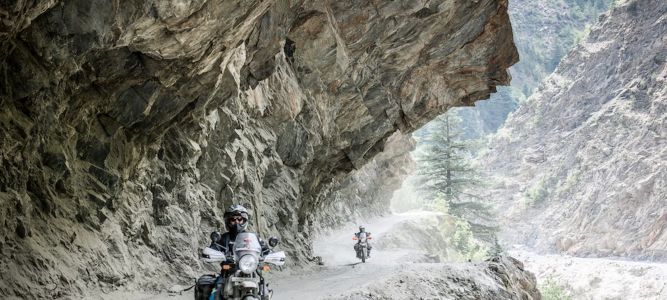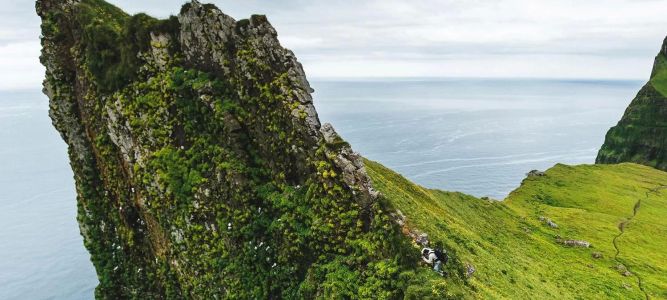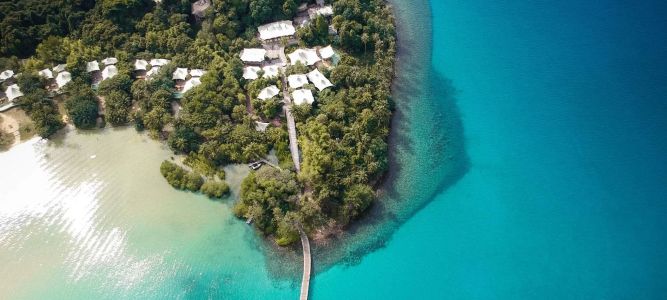Exploring Remote Mountain Ranges in Africa for Adventure
- 1. Why Explore Africa's Remote Mountain Ranges?
- 2. Top Mountain Ranges for Adventurers in Africa
- 3. What to Expect When Trekking Africa's Remote Mountains
- 4. Practical Tips for Adventurers
- 5. Real-Life Adventure Stories in Africa’s Mountains
- 6. How to Prepare for an African Mountain Adventure
1. Why Explore Africa's Remote Mountain Ranges?
For adventurers seeking unique and challenging experiences, exploring the remote mountain ranges in Africa offers an unmatched opportunity. These mountains are not only beautiful and awe-inspiring but are also rich in biodiversity, cultural history, and opportunities for physical challenges. Whether you're a seasoned trekker or an adventure enthusiast, these remote locations provide a rare chance to immerse yourself in nature, far from the typical tourist trails.
Mountains like the Rwenzori Range, Atlas Mountains, and the Drakensberg are not only known for their stunning landscapes but also their remote access, making them ideal for adventurers seeking to push their limits while experiencing the rugged beauty of Africa.
2. Top Mountain Ranges for Adventurers in Africa
Africa is home to several mountain ranges that attract adventurers from around the globe. Here are some of the top mountain ranges that offer thrilling challenges and unforgettable experiences:
- Rwenzori Mountains (Uganda and the Democratic Republic of Congo): Known as the “Mountains of the Moon,” the Rwenzori range is a UNESCO World Heritage site. Adventurers can trek through glaciers, rainforests, and alpine meadows on this challenging climb.
- Atlas Mountains (Morocco): The Atlas range offers diverse terrain, from arid deserts to lush valleys, with incredible views and cultural experiences in Berber villages. The Toubkal summit is a popular trek for those seeking a moderate challenge.
- Drakensberg Mountains (South Africa and Lesotho): Known for its dramatic peaks and rich biodiversity, the Drakensberg mountains offer a variety of hiking and climbing experiences. It’s one of the most popular mountain ranges in Southern Africa.
- Simien Mountains (Ethiopia): A UNESCO World Heritage site, the Simien Mountains are famous for their rugged cliffs, deep valleys, and unique wildlife such as the Gelada baboon. The trek through this region offers stunning views and a challenging adventure.
- Kilimanjaro (Tanzania): Africa's highest peak is a bucket-list destination for trekkers. Although the climb to the summit of Kilimanjaro is non-technical, it offers a grueling test of endurance with its altitude and varying climates.
Each of these ranges offers a distinct experience, and they’re perfect for those who seek more than just a typical mountain adventure. Africa's remote mountain ranges provide plenty of opportunities to engage in trekking, mountaineering, and wildlife encounters.
3. What to Expect When Trekking Africa's Remote Mountains
Trekking in Africa's remote mountain ranges comes with its own set of expectations. Whether you're climbing the rugged peaks of the Drakensberg or crossing the glaciers of Rwenzori, you’ll encounter various challenges and rewards:
- Isolation: These mountains are remote, which means fewer tourists and a more solitary experience. Be prepared for long stretches of wilderness and limited communication with the outside world.
- Changing Weather Conditions: Africa’s mountain weather can be unpredictable, especially at high altitudes. You can experience extreme temperatures, from freezing cold at higher elevations to warm weather at the base. Proper clothing and gear are essential.
- Wildlife Encounters: Some of Africa’s most exotic wildlife, such as mountain gorillas in Rwanda or baboons in the Simien Mountains, can be found in these regions. Stay cautious and respectful of local wildlife.
- Cultural Experiences: Many of these mountain ranges are surrounded by indigenous communities. You’ll have the opportunity to learn about local cultures and traditions, such as those of the Berber people in Morocco or the tribes around Mount Kilimanjaro.
Expect a challenging yet rewarding adventure as you explore these remote regions, which offer both physical challenges and cultural enrichment.
4. Practical Tips for Adventurers
Preparing for an adventure in Africa’s remote mountain ranges requires careful planning. Here are some practical tips to help you have a safe and successful trip:
- Physical Preparation: These treks require endurance. Make sure you’re physically prepared by training regularly, focusing on cardiovascular fitness and leg strength.
- Get the Right Gear: Proper gear is crucial. Invest in high-quality hiking boots, clothing for varying weather conditions, and a good sleeping bag for cold nights at higher altitudes.
- Acclimatization: Many of Africa’s mountains are at high altitudes. Take time to acclimatize to avoid altitude sickness, which can ruin your adventure.
- Travel with a Guide: In remote areas, it’s highly recommended to trek with a local guide. They can help with navigation, offer safety advice, and provide insights into the region's natural beauty and culture.
By preparing thoroughly, you can ensure your adventure in Africa’s remote mountain ranges is both safe and enjoyable.
5. Real-Life Adventure Stories in Africa’s Mountains
Many adventurers have explored Africa’s remote mountains and returned with unforgettable stories. For example, Emily, an avid trekker, recalls her journey through the Rwenzori Mountains: “The challenge was incredible. We hiked through dense rainforest, crossed glaciers, and summited one of the highest peaks. The experience was both physically demanding and spiritually enriching.”
Similarly, James from South Africa shares his experience with the Drakensberg: “The views from the top were breathtaking. The mountain range is truly magnificent, and spending time hiking there made me appreciate the raw beauty of Africa’s wilderness.”
These real-life stories highlight the transformative nature of trekking in Africa’s remote mountains. Each journey brings a new sense of accomplishment and connection with the land.
6. How to Prepare for an African Mountain Adventure
Proper preparation is key to enjoying your adventure in Africa’s remote mountain ranges. Aside from physical conditioning and packing the right gear, here are some tips to ensure you're ready:
- Research Your Destination: Each mountain range has its own challenges. Research the terrain, climate, and potential hazards specific to the area you plan to visit.
- Know the Best Time to Go: Many of Africa’s mountains are best visited during the dry season to avoid slippery trails and harsh weather. Plan your trip accordingly.
- Stay Safe: Always inform someone about your trekking plans and route. Stay aware of your surroundings, and be mindful of wildlife and environmental risks.
By preparing thoroughly, you can ensure an adventurous and safe trek through Africa’s remote mountain ranges.





